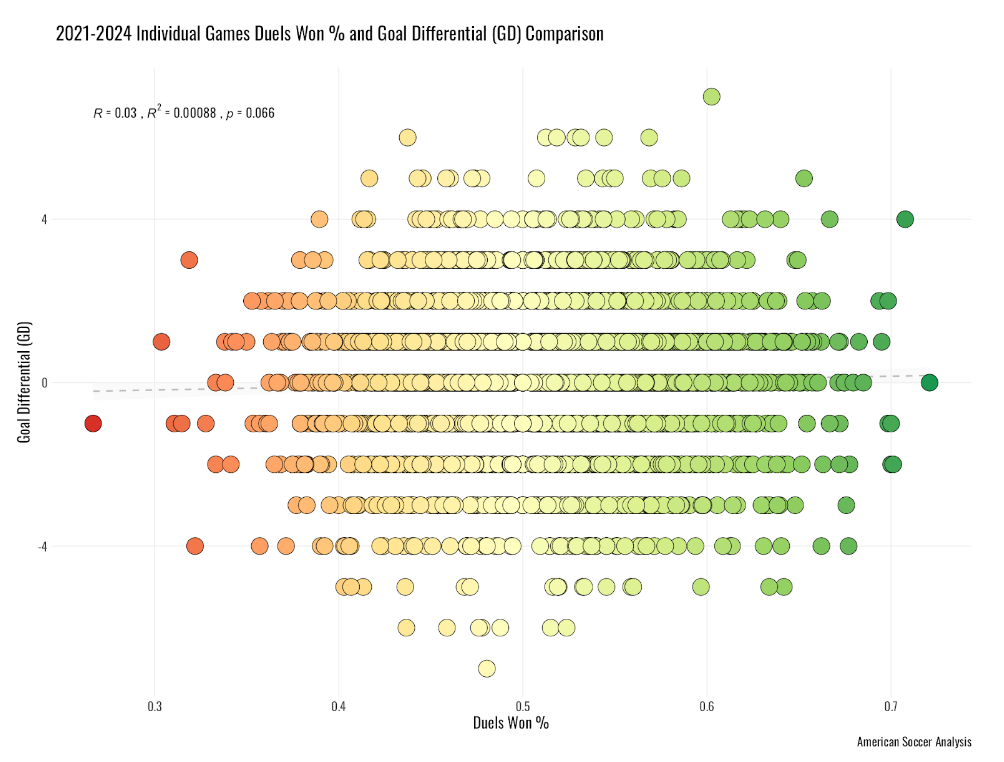Across the sport, whether in a U-8 league or in the top professional leagues, players are told to “win your duels!”, “win the 50-50 balls!”, and “win the second balls!” But does actually doing so lead to better game outcomes?
And what is a duel, anyway? Well, I asked a few former MLS and youth coaches that very question, and they all had different perspectives. The terms “aerial duels”, “loose balls”, “one-v-ones”, and “tackles” were used. None of them said anything about fouling, dribbling past defenders, or that keepers need to claim balls on the ground faster, and yet the data provider Opta tells me those are duels, too.
So…what the heck is a duel?
According to Opta, a duel is a “50-50 contest between two players of opposing sides in the match. For every Duel Won there is a corresponding Duel Lost depending on the outcome of the contest.” Honestly, that sounds great and all, until you get into the details of what they think these are.
Here are the types of duels and the public Opta definitions of them:
- Successful Take-on/Dribble – Challenge Lost: The player who has been beaten is given a Challenge lost if they do not win the ball.
- Smother – Unsuccessful Take-on: A goalkeeper who comes out and claims the ball at the feet of a forward gets a smother, similar to a tackle, however, the keeper must hold onto the ball to award a smother.
- Aerial Challenge Won – Aerial Challenge Lost: This is where two players challenge in the air against each other. The player that wins the ball is deemed to have won the duel. When more than two players are involved the player closest to the duel winner is given an Aerial Duel lost.
- Tackle – Unsuccessful Take-on/Dispossessed: A tackle is awarded if a player wins the ball from another player who is in possession. If he is attempting to beat the tackler, the other player will get an unsuccessful Take-on. If he is in possession but not attempting to “beat” his man, then he will get a dispossessed.
- Foul won – Foul Conceded: The player winning the foul is deemed to have won the duel and the player committing the foul having lost the duel.
Most of these don’t fit the “50-50 contest” definition. Maybe fouls balance out and aerial situations tend to be one-v-ones, but there seems to be a natural advantage, usually for the attacker, for a lot of these other situations. Of these scenarios, only the aerial challenge would be one with a neutral possession state.
In aggregate, winning more of these things than the other team doesn’t seem to affect game outcomes.

Nonetheless, our mission here is to identify what teams are good at these things and what value duels are providing them.






